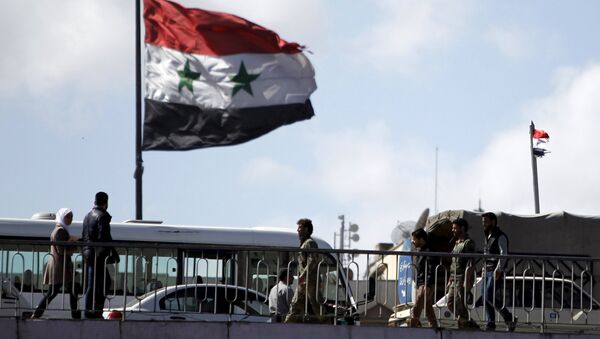MOSCOW, January 2 (Sputnik) — Since August 2016, Turkish forces have been conducting a military operation to clear northern Syria of Daesh, with the Syrian Kurds and Damascus accusing Ankara of violating Syria's territorial integrity.
"Of course, Moscow has made some concessions to Ankara by reacting very gently to the de facto establishment of a buffer zone in the north of Syria. There was no harsh reaction from Russia, but it does not mean that Moscow… will accept that some part of Syria is occupied by a foreign state for a long time, regardless of which state it is," Naumkin told RIA Novosti.
Ankara did not see Syrian President Bashar Assad as an immediate threat, with its first priorities being Islamic cleric Fethullah Gulen suspected of orchestrating July's foiled coup in Turkey, Kurds and Islamist terrorist groups, such as Daesh, he explained.
"Assad is only in the fourth place. Perhaps, he will stop being seen as a threat, it is hard to say yet. I think, the framework of these accords [on resolution of conflict in Syria] will, naturally, be agreed on at the meeting in Astana, which is going to take place in the near future, no later than mid-January," Naumkin noted.
Putin called on the Syrian government, armed opposition and all countries with influence on the situation in the Arab republic to support the reached agreements and to take part in the anticipated talks in Astana.
A nationwide ceasefire between the Syrian government and opposition factions came into force at midnight on Friday. Russia and Turkey serve as guarantors of the ceasefire deal, which paves the way for negotiations between the warring parties.
The International Syria Support Group should convene before the resumption of peace talks in Geneva, if the intra-Syrian negotiations in Astana are successful, Vitaly Naumkin said.
"I think that it [calling an ISSG session] will be necessary if Astana succeeds, if it takes place within the time-frame we are talking about, which means, rather early, for the results to be seen before the inauguration of [US President-elect Donald] Trump [on January 20]," Naumkin told RIA Novosti.
Naumkin said that holding an ISSG session before February 8, when the intra-Syrian talks in Geneva are scheduled to take place, was theoretically possible, if Trump made new appointments.
"But this is not easy to do fast. All of them [new appointments] have to be approved by the Congress… It is not clear yet, who in this team will be responsible for the Middle East," Naumkin said.


